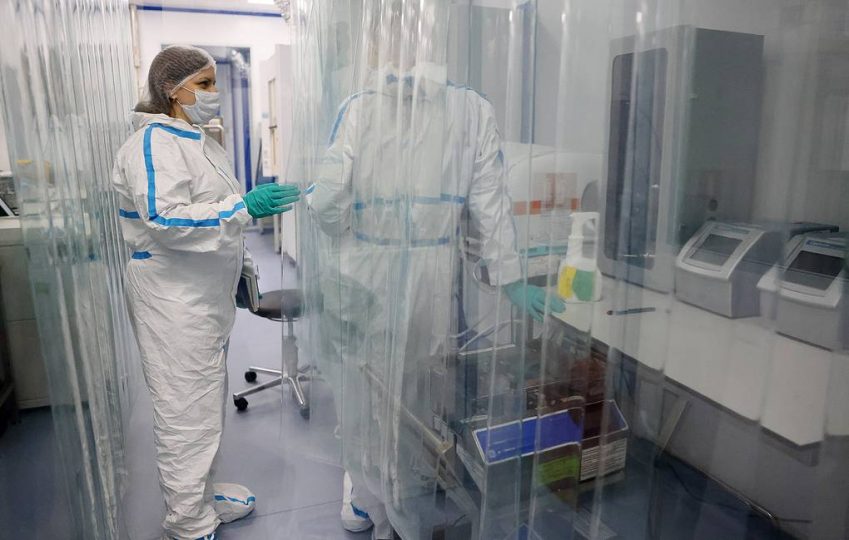The world’s first isothermal amplification diagnostic test to detect two different SARS-CoV-2 viral genome sections has been registered in Russia, Russia’s sanitary watchdog said on Thursday.
“The Central Research Institute of Epidemiology has registered the AmpliSens SC2-IT kit, the world’s first isothermal amplification test to detect two different SARS-CoV-2 viral genome sections concurrently. The new development ensures increased detectability of the virus and reduced the likelihood of a false-negative result,” it said.
The kit of reagents works on the basis of the method of the reproduction of the pathogen genome copies in vitro. “But unlike other existing LAMP-based testing systems, it is geared to detect two various SARS-CoV-2 viral genome sections, which are not that mutable as the coronavirus S-gene section,” it said. “It means that even in case of a serious mutation of once genome section, the second section will make it possible to detect the virus.”
According to the watchdog, the new testing kit can be used in case of mutations in the existing amplification sections. “Since the probability of major mutations in two target coronavirus genome sections at once is quite low, this platform makes it possible to swiftly choose another, more conservative section for amplification and modify the test,” it added.
The new test is highly sensitive and the result is ready in 20-25 minutes, instead of 90 minutes needed to receive a result of a regular PCR test. The new kit is adapted for use on the basis of Russia’s existing infrastructure, with all components being locally manufactured by the Central Research Institute of Epidemiology.




